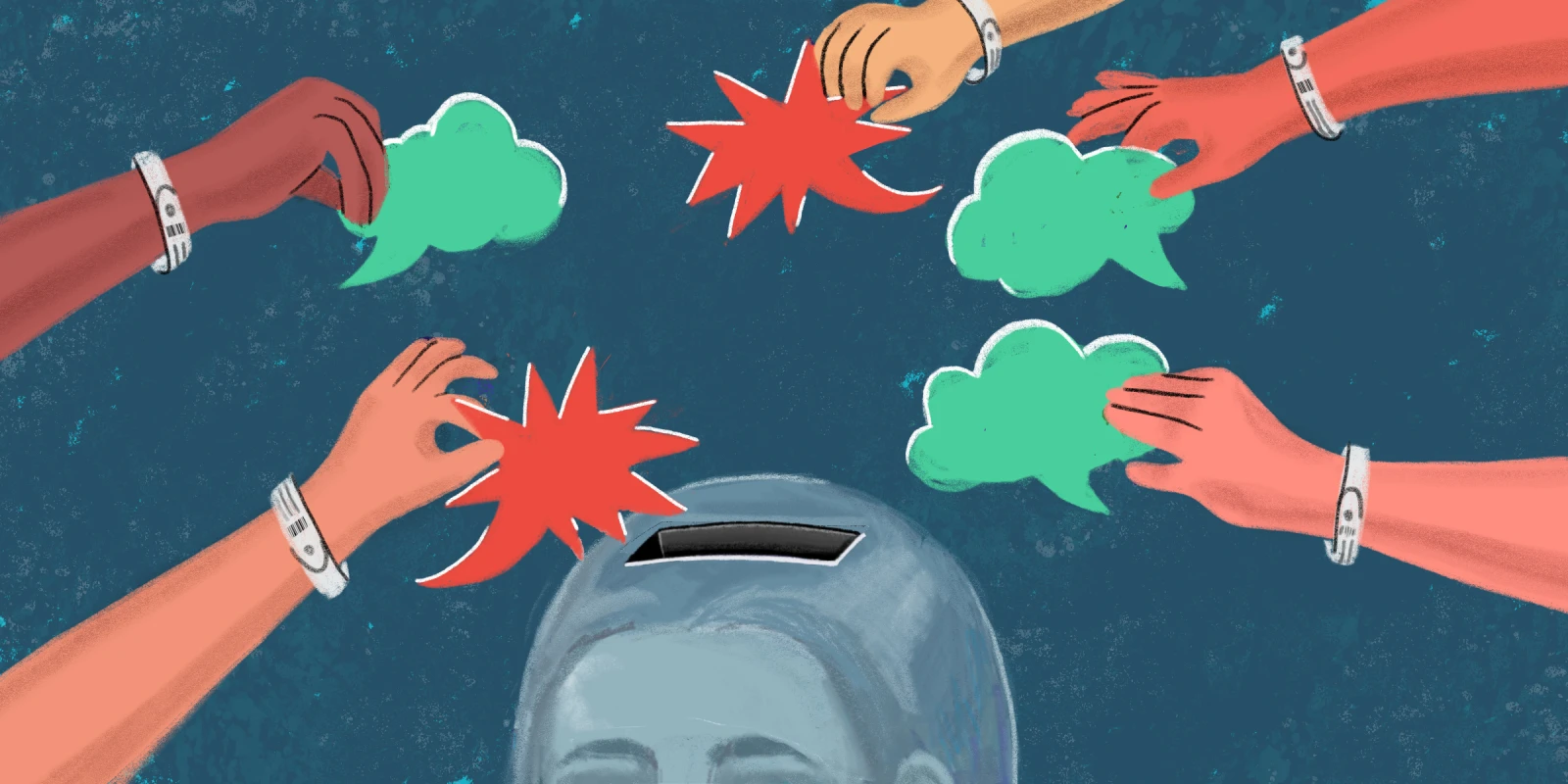I felt tears forming. I hastened out of the exam room, shielding my face from the medical student assigned to me. A mother of a patient had admonished me loudly for overstepping my bounds, accusing me of not knowing anything about her child. She pointed her finger at me, her eyes large and wide with anger. That evening, I received an email from the medical student: "Dr. Rao," he wrote, "I know today was hard, but I want you to know you're a fantastic physician. You shouldn't feel bad for taking care of that patient." Although this was a sweet gesture, it made me feel worse that this student was trying to comfort me. I displayed my emotions in full force in front of the student, in front of the clinic staff, during a time when I was supposed to show the medical student "how it's done." Why had I handled this negative situation poorly? Why couldn't I have done better? What is a physician to do when patient-related emotions run high?
Perhaps the answer lies in how physicians receive praise and physicians' perception of both praise and hostility. As a medical student, I envisioned a rosy patient-physician relationship, where patients are grateful, and physicians are compassionate. I do have plenty of these. I think about Kelly, a young girl with asthma, whose mother never hesitates to shower gratitude upon me every time she sees me, and at times, the praise is so lengthy that I have to gently intercede. I think of Mercedes, whose mother told me that she felt I was the most caring physician she had ever seen, something that made me blush with embarrassment, eager to move along to my standard questions. In these interactions, my mind actually begs to move on, reluctant to allow praise to seep comfortably into my ego. A physician with a big ego, I tell myself, is one who closes herself off to out-of-the-box thinking and will never question her judgment with humility. I don't wish to be one of those physicians who brush off hostility with ease. And it's the hostile patients I am more apt to remember. Why is it so much easier for me to let go of the praise than the hostility? Why must I learn more from the negative interaction than from the positive one? Should I not treat each interaction with equal respect?
The austerity of practicing medicine is keeping in mind that every patient encounter is not about me. I enter the exam room as a person of authority, the one with the training and knowledge who holds the promise of a cure. Yet, my knowledge means nothing without the patient at the center of the visit. The questions I must ask myself, regardless of praise or criticism, are: Did I do my very best when formulating my differential diagnosis and treatment plan? Did I ensure that biases did not affect my decision-making? In asking these questions, patient care becomes the ultimate exercise in mindfulness, where the physician's ego should shed any attachment to prior negative or positive criticism — even if such feedback occurred just minutes before.
Research supports this view of patient-centered interactions. In a review on challenging patient interactions, Georgia Hardavella suggests that every interaction depends on doctor, patient, and systemic factors. These include systemic factors such as clinic flow and resource availability, physician factors such as job satisfaction and sleep deprivation, and expectations and quality of life of patients. In a study in which audio from physician-patient outpatient interactions were reviewed by independent raters, Ruberton et. al found that physician communication improved when patient satisfaction was higher, that physician frustration was associated with worse communication, and that physician humility was a strong predictor of patients' health perception. The authors hypothesize that patient perception of health may be due to a humble physician's ability to "steer patients to behave in health-promoting ways," and therefore be more patient-focused.
However, we as physicians are not robots. We can't turn off emotions whenever we like and move calmly onto the next patient, having just been berated. Both physicians and patients carry with them the baggage of psychosocial stressors, just as Hardavella argues. Even positive interactions are influenced by external factors and are not solely the result of physician humility and skill. In retrospect, I should not have been ashamed of my tears in front of the medical student. It was a teaching opportunity for both my student and me, that as physicians, sometimes patient interactions evoke strong emotions — we take the "good," with the "bad," aware of the myriad of outside influences.
Moreover, the very categorization of good and bad interactions is a false dichotomy. Every patient encounter has a number of untold influences, and physicians with experience learn to navigate the nuances and complexity of those influences. In the end, when an interaction evokes strong emotions, we must rely on each other, no matter our level of training, just as the medical student did for me with his kind email. Especially during this era, when the institutions of science and evidence-based medicine are in question, and when families face unfathomable legal and financial stressors, we should expect emotions to run higher. As colleagues, we must show up for each other to support patient-centered interactions, and health care systems need to recognize these stressors affecting physician-patient interactions. Junior and senior physicians alike require time and space to allow for reflection on all kinds of patient experiences, just as time is made for morbidity and mortality or complex case conferences. With strong support, physicians can approach patient care with humility, knowing that both positivity and adversity are integral experiences of the practice of medicine rather than reflections of skill or deficiency.
What's the last "good" and "bad" feedback you got? Share in the comments.
Devika Rao is a practicing pediatric pulmonologist in Texas. She enjoys writing, trying new vegetarian recipes, yoga, and spending time with her two boys and husband. Dr. Rao is a 2024-2024 Doximity Op-Med Fellow.
All names and identifying information have been modified to protect patient privacy.
Illustration by Diana Connolly







